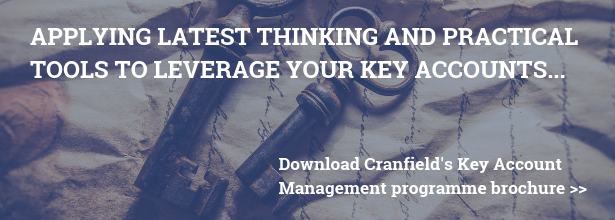
The greatest potential of using key account management (KAM) as a strategic approach for growing a supplier’s business, rests on the capability to develop long-term relationships with customers. The continuity of a supplier-customer relationship usually comes with such positive outcomes as revenue growth, increased profitability, greater market knowledge and new business opportunities, amongst other benefits.
However, developing good key account relationships is not easy and, in the process, there are certain risks that companies need to be aware of, such as opportunistic behaviour or a lack of innovation.
So, how do we address this challenge?
A first step is to understand what type of relationship our company currently has with a key account, and how we want it to be in the future. I have identified six types of buyer-supplier relationships:
- Vulnerable supplier: The supplier is in a high dependency position relative to the buyer, and they have a transactional approach to their business relationship.
- Vulnerable buyer: The buyer is in a high dependency position relative to the supplier, and they have a transactional approach to their business relationship.
- Inviting buyer: The supplier is in a high dependency position relative to the buyer, and they have a relational approach to their business relationship.
- Inviting supplier: The buyer is in a high dependency position relative to the supplier, and they have a relational approach to their business relationship.
- Competitive interaction: There is a mutual dependency between the supplier and the buyer, and they have a transactional approach to their business relationship.
- Collaborative partnership: There is a mutual dependency between the supplier and the buyer, and they have a relational approach to their business relationship.
We see as a major trend the growing importance of collaboration between suppliers and buyers and a preference for long-term relationships with fewer customers (or suppliers), rather than short-term contracting with a large number of accounts. This trend favours collaborative partnership as the desirable type of buyer-supplier relationship for most organisations involved in KAM. But, how do we achieve this goal?
There are four important elements to build successful long-term relationships with key accounts:
- Shared values and goal congruence.
- Information sharing and communication.
- Cooperation and reciprocity.
- Interpersonal bonds and social ties.
Additionally, supplier companies need to have a clear understanding of the customer journey, which refers to the complete purchase cycle and dynamic process over time across multiple touchpoints (or sources of interaction) which build customer experience.
Want to find out more? Adopting Key Account Management is covered in more detail in the Kogan Page book Implementing Key Account Management. Take a look to see how you could build successful long-term relationships with your key accounts.
Our work in this area is critical to achieving successful key account management programs for organisations looking to succeed at managing key account customers. For the past twenty years, Cranfield has pioneered the development of Key Account Management research in Europe. Working with world leading businesses to adopt new frameworks to fully leverage key relationships and strategies. This new frontier knowledge is continually integrated into our Key Account Management Programme
Blog produced by: Professor Rodrigo Guesalaga, former Programme Director of the Sales Director Programme and KAM Best Practice Forum at Cranfield School of Management. Rodrigo is a Key Account Management expert and is now an Associate Professor at Pontificia Universidad Católica de Chile.
Read more:
- Adopting KAM – Choose me and I will choose you
- The Key Account Management Framework
- International Key Account Management – The World is (or Could Be) Your Oyster
- Why many companies get key account management hopelessly wrong
- Implementing KAM – KAMA Chameleon




